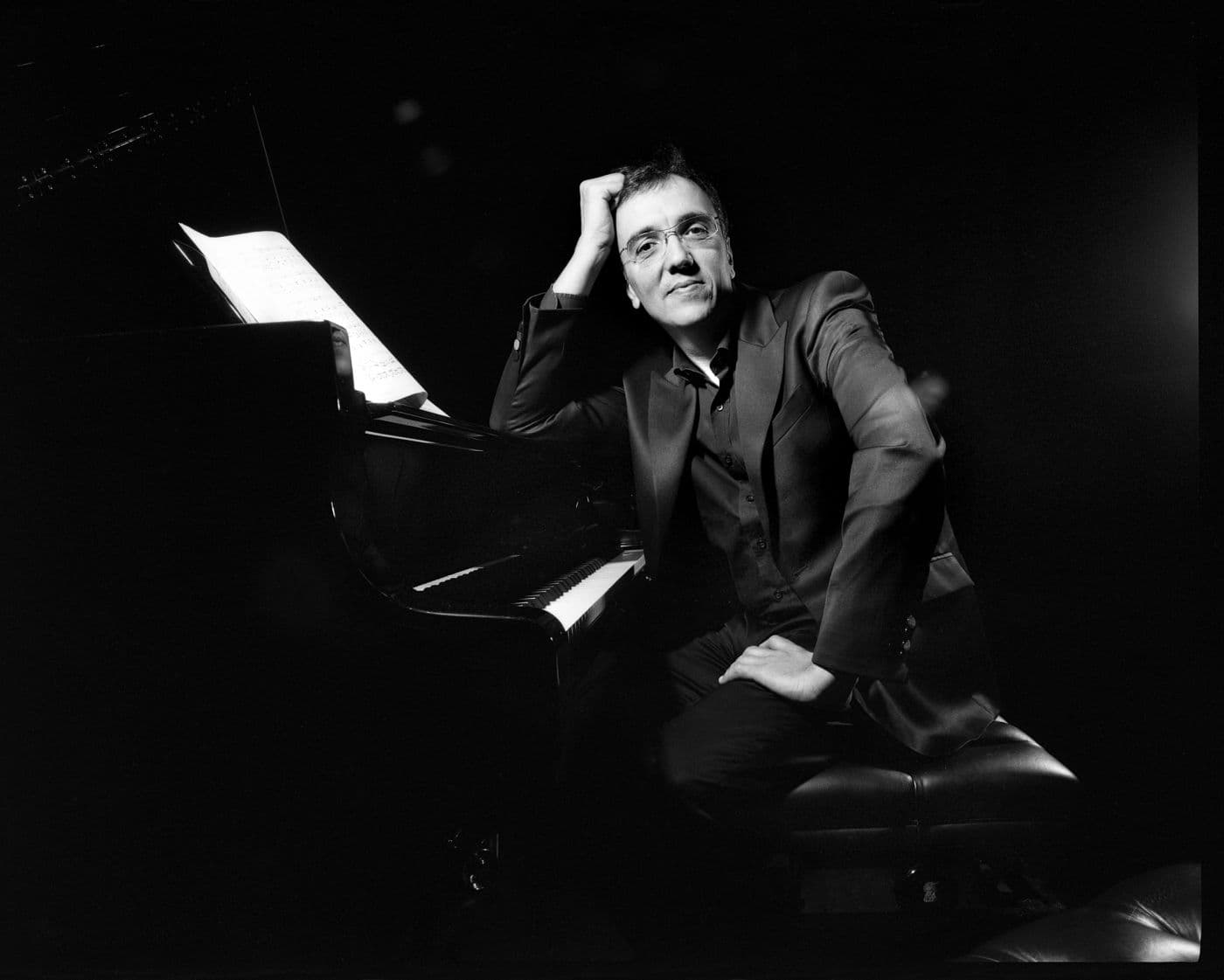It was love that first brought Éric Le Sage to the Banff Centre for Arts and Creativity.
“I first came here 40 years ago to meet my girlfriend at the time,” he recalls.
Fast forward to 2025, and Le Sage finds himself once again in the Rocky Mountains participating in the Banff Centre’s Interplay program, working with the next generation of classical musicians on the music of the great masters, from the French masters that he has shared throughout his career like Debussy, Faure, and Poulenc, to his favourite composer of all, Robert Schumann.
Now, entering his 60’s, Le Sage is thinking more intentionally about sharing the wonders of the composers he has performed, recorded and taught all over the world with those who want to learn it. “You want to transmit a little bit of what you learn... because it’s a long process,” he says. “It’s a long process to learn and to transmit. And when you transmit, also, you learn from the student. It’s energy going up, going through the student to me. And from the musician, in this specific place in Banff, you can feel there is a lot of energy between people.”
While the energy of Banff is an inspiring one to interact with, Le Sage notes that the nature of the music that he plays here shares a quality with the mountains: unchanging, but nevertheless, evolving. “You never do the same thing all the time,” he explains. “Perhaps the way of the music changes in a good way, but the sound itself, when you play this music, you have to come close to the idea. Our job of interpreter is just to take a text and to learn it. In a way, we can transmit it in the best way.”
The means of transmission has changed so much over the course of Le Sage’s four decades of performing. The students whom he works with at the Banff Centre are often learning music from digital scores on iPads, and recordings are able to be accessed with a couple of taps on a smartphone. In the midst of this ease of access, Le Sage preaches time for those who want to truly understand the music of the great masters. “What you have to learn is to take time to go deep to some repertoire,” he says. “You have to make a choice, to give [yourself] a chance to go deeply in some composers, some music. But it’s difficult. The world is moving so fast, it’s difficult to take time.”
One composer that allows for musicians to take time to discover the true passions of his work is Robert Schumann. Le Sage recorded Schumann's complete piano and chamber music catalogue to mark the 200th anniversary of his birth in 2010, and he still marvels at the feeling that Schumann’s music conjures of being suspended in time, above the mountains of Banff. “Music is only art dealing with time,” he says. “When you play music, the time is out, so you have to deal with this. But it’s very mysterious music. Sometimes, you have a feeling of time disappearing.”
